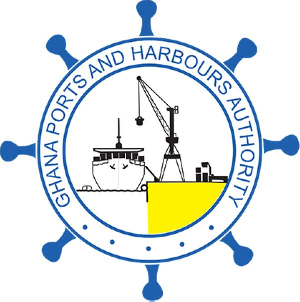The Ghana Shippers' Authority together with the Ghana Martime Authority have organised a day's sensitisation seminar for maritime sector operators on the need to reduce emissions.
It is projected that about 570,000 premature deaths could occur due to respiratory and other health complications associated with emissions from ships which currently use fuels containing 3.5 Sulphur content.
The situation has prompted the Global Maritime Organization to put in place measures such as the reduction of the Sulphur content to 0.5 for new ships, whilst older vessels implement good management plans to avoid excess pollution.
The UN 2030 agenda on the SDGs 13 and 14 enjoins member countries to pay attention to issues on global warming through the adoption strategies and progressive programming to save the environment.
Mrs Benonita Bismarck, the Chief Executive Officer of the GSA, said the sensitization is the third in the series of a nationwide stakeholder sensitization on the International Maritime Organization’s (IMO) 2020 Sulphur Cap Regulation.
She said it has become important for industry stakeholders to catch up on key global industry expectations that has the ability to change the face of industry and the impact of IMO 2020 Sulphur Cap Regulations on shipping costs.
Though the two organizations are distinct and separate from each other, such collaborations help on matters of safety, security and pollution of the marine environment, while that of Shippers Organizations, deals with freight rates, port charges, conditions of shipment and multimodal transportation.
The above, notwithstanding, the IMO 2020 Sulphur Cap Regulation presents cross cutting issues of significant interest to both organizations.
Sulphur is a natural component in crude oil that is present in gasoline and diesel. Sulphur in gasoline impairs the effectiveness of emission control systems and contributes to air pollution.
Mrs Bismarck said reducing the sulphur content in gasoline enables advanced emission controls and reduces air pollution.
The implementation of the IMO 2020 regulation and the planned response by the shipping lines is likely to result in higher freight rates for all category of shipments.
The CEO said with fuel costs already representing more than 50 percent of total operating expenses, the implementation of the IMO 2020 Sulphur Cap Regulations will pose an increase too significant for carriers and cargo owners to absorb and stay operational.
She said sustainable shipping is the key to ensuring that the environment is protected while providing the goods and services for human consumption.
She said preparing for the ramifications that came with the implementation would ensure that collectively the unintended consequences on the industry are well managed.
Business News of Monday, 16 December 2019
Source: ghananewsagency.org













